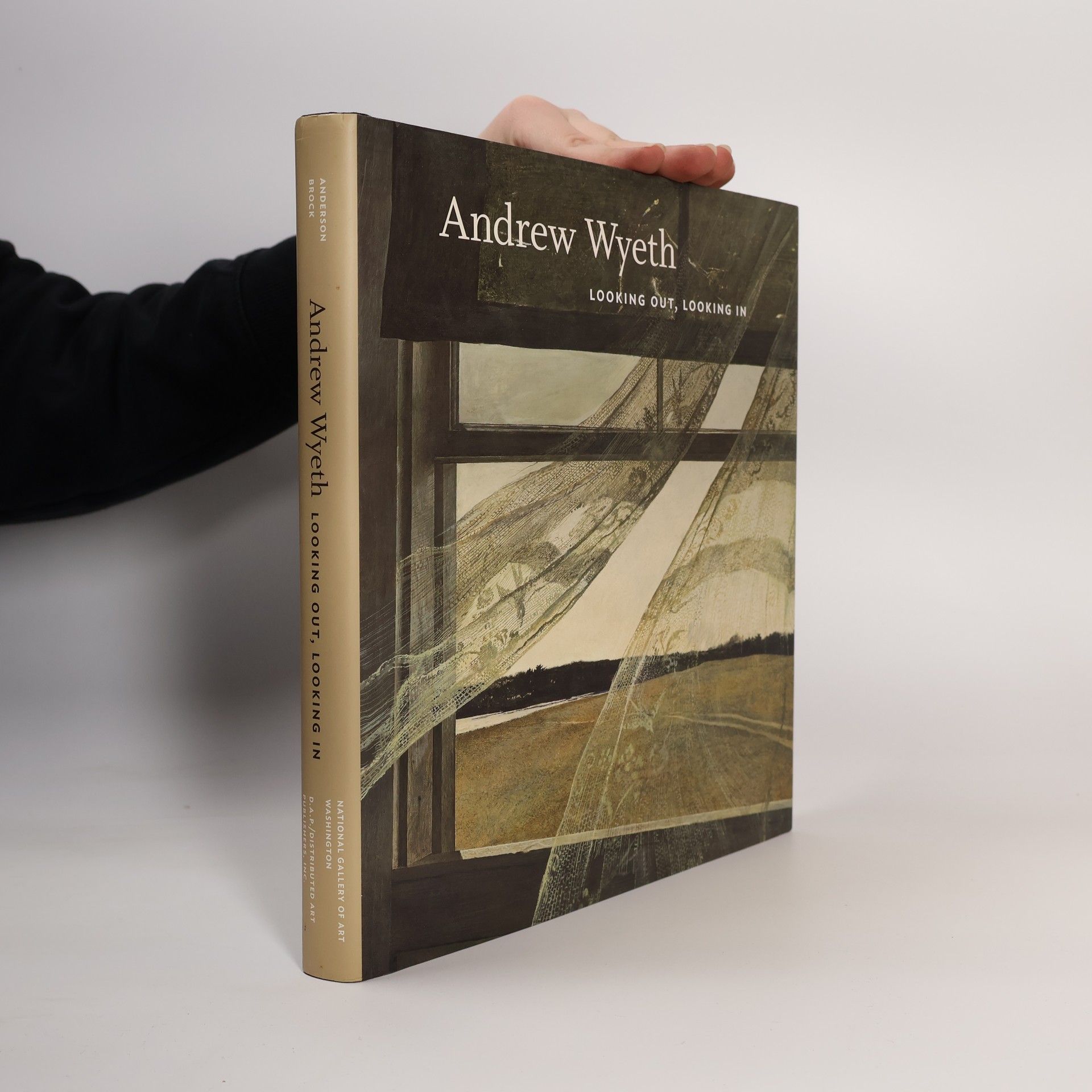Douglas Fisher Bücher
Dieser Autor konzentriert sich auf Bildung und Bildungsführung. Seine Arbeit stützt sich auf umfassende Erfahrungen in Lehre und akademischer Forschung. Er erforscht zentrale Aspekte der pädagogischen Praxis und der Schulleitung. Ziel ist es, zu inspirieren und praktische Einblicke zur Verbesserung des Bildungssystems zu geben.






Andrew Wyeth
- 216 Seiten
- 8 Lesestunden
One of Andrew Wyeth's most important paintings, Wind from the Sea, a recent gift to the National Gallery of Art, is also the artist's first full realization of the window as a recurring subject in his art. Wyeth returned to windows over the next sixty years, producing more than 250 works that explore both the formal and conceptual richness of the subject. Spare, elegant and abstract, these paintings are free of the narrative element inevitably associated with Wyeth's better-known figural compositions. In 2014 the Gallery will present an exhibition of a select group of these deceptively 'realistic' works, window paintings that are in truth skilfully manipulated constructions engaged with the visual complexities posed by the transparency, beauty and formal structure of windows. In its exclusive focus on paintings without human subjects, this catalogue will offer a new approach to Wyeth's work, being the first time that his non-figural compositions have been published as a group. The authors explore Wyeth's fascination with windows - their formal structure and metaphorical complexity. In essays that address links with the poetry of Robert Frost and the paintings of Edward Hopper, Charles Sheeler and Franz Kline, the authors consider Wyeth's statement that he was, in truth, an 'abstract' painter.
The Quick Guide to Simultaneous, Hybrid, and Blended Learning
- 120 Seiten
- 5 Lesestunden
What a year! Twelve months and counting since COVID expanded, stretched, and blurred the boundaries of teaching and learning, at least one thing has remained constant: our commitment as educators to move learning forward. It’s just the context that keeps changing—why Doug Fisher, Nancy Frey, John Almarode, and Aleigha Henderson-Rosser have created a follow-up to The Distance Learning Playbook, their all-new Quick Guide to Simultaneous, Hybrid, and Blended Learning. First, to be clear: simultaneous learning must not be an additive, meaning we combine two entirely different approaches and double our workload. That’s unsustainable! Instead, we must extract, integrate, and implement what works best from both distance learning and face-to-face learning environments. Then and only then—Doug, Nancy, John, and Aleigha insist—can we maximize the learning opportunities for all of our students
Renowned educators Douglas Fisher, Nancy Frey, and Diane Lapp saw it was high time classroom teachers had an encyclopedia’s worth of practical, research-based ideas organized into concise modules. You will love the lively tone, the contemporary research findings, and the abundance of activities that help children become skilled readers. This resource goes deep, it goes wide―and yet most brilliantly, it reveals the crucial connections that make for high-impact instruction.
Welcome to Teaching!
- 216 Seiten
- 8 Lesestunden
Your Hands-On Guide to Thriving Your First Year of Teaching You’ve made the incredible decision to become an educator because you want to impact the learning lives of young people. Thank you, and welcome. We welcome you to this amazing profession with open arms, and with an arsenal of experience and essential tools, strategies, and lessons to help you establish a successful and satisfying teaching career. We wanted to make it easier for you to learn and practice these techniques that research shows increase student learning. To do so, we also considered cognitive psychology research that tells us that images and illustrations can help strengthen communication and our own understanding. This helped us develop the unique format for this part hands-on playbook, part professional book, and all highly illustrated, it is designed to make complicated concepts more digestible and memorable. This extensive guide for new teachers provides everything you need to impact learning from your first day on, Teaching is without a doubt one of the most challenging professions there is. But those who chose to accept that challenge are what make teaching the best profession in the world!
The Vocabulary Playbook
- 184 Seiten
- 7 Lesestunden
Concepts, conversation, collaboration--vocabulary instruction is so much more than lists of words. More is more when it comes to students' vocabulary knowledge, and in The Vocabulary Playbook, educators in K-12 get ideas for transforming all children into curious, capable word learners. The key? Put away the word-list mindset, and embrace active modeling, peer work, and independent practice. Five modules offer direct instruction and effective routines that show how to: Select and teach only the most high-utility, transferable words that are ripe for discussion Use direct instruction to model word-solving in each content area Teach morphology in ways that invite students to apply understandings in reading, writing, talk, and listening Turn academic word-learning into a relevant experience with peer collaboration activities Create a culture of word consciousness by emphasizing concepts, modeling curiosity, and offering "low-risk" routines that make it okay to not yet know Intentional vocabulary instruction is critical in every grade, and in every content area. With The Vocabulary Playbook, your approach is now tactical, transparent, and fun. Whether you are an administrator executing a school-wide plan or a teacher eager for practical strategies, this is the book that will help students build academic success--word by word.
Transform negative behavior into a teachable moment at your school, utilizing restorative practices that are grounded in relationships and a commitment to the well-being of others.
Grading With Integrity
A Research-Based Approach Grounded in Honesty, Transparency, Accuracy, and Equity
- 192 Seiten
- 7 Lesestunden
Focusing on evidence-based grading, this book emphasizes the importance of integrity in educational assessments. It provides strategies for implementing fair grading practices that reflect student learning accurately. Through practical examples and research-backed methods, educators can enhance their grading systems to promote transparency and accountability. The text encourages a shift from traditional grading to more meaningful assessments that support student growth and success.
The Teacher Credibility and Collective Efficacy Playbook, Grades K-12
- 280 Seiten
- 10 Lesestunden
The book delves into the connection between a teacher's credibility with students and the effectiveness of teamwork in educational settings. It emphasizes how building trust and rapport enhances both individual and group performance, ultimately leading to improved student outcomes. By fostering a collaborative environment, educators can leverage their strengths and create a more impactful learning experience.
The book features a comprehensive table of contents that outlines the main topics and chapters covered, providing readers with a clear roadmap of the material. Each section is organized to facilitate understanding and navigation, allowing for easy reference to key themes and concepts. This structured approach enhances the reader's ability to engage with the content effectively.